Report: Exploring the workplace for LGBT+ physical scientists
A new report suggests the majority of LGBT+ physical scientists and their colleagues feel comfortable with levels of inclusivity at work and see the climate improving - but more should be done.
The study, commissioned by the Royal Society of Chemistry (RSC), Institute of Physics (IOP) and Royal Astronomical Society (RAS), found that 16% of survey participants had experienced exclusionary behaviour in the past year.
Three quarters of respondents feel their work climate is ‘comfortable’, but the report found that non-binary and transgender scientists are at high risk of negative treatment. In the 12 months before the survey, 30% of respondents had witnessed exclusionary behaviour within the workplace – with higher prevalence in chemistry-focused environments than astronomy or physics.
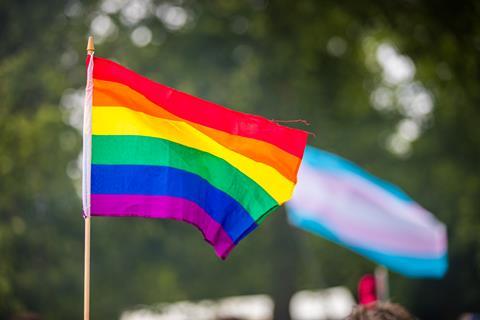
28% of LGBT+ respondents considered leaving their job on discriminatory or anti-LGBT+ grounds - with one in five transgender respondents considering it often.
‘While the survey showed people were generally comfortable, there are clearly still some issues with the culture in the workplace with one in four still feeling unable to be themselves at work,’ says RSC deputy chief executive Helen Pain.
Not all of science requires a clinical touch
‘Some LGBT+ respondents even felt the discussion of personal lives or interests outside of work could be perceived negatively by colleagues. This kind of atmosphere is both harmful for those individuals and the wider physical sciences community – and needs to be addressed to prevent these attitudes becoming more prevalent in the workplace,’ advises Pain.
In fact, 15% of respondents said they sense an expectation for LGBT+ colleagues to remain closeted compared to 23% of science teachers who sense that in their environments. Interviews also revealed a propensity for impersonality within scientific environments - which some respondents used as reasoning to undermine pro-LGBT+ initiatives.
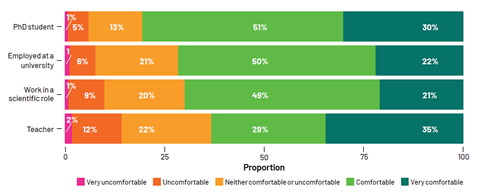
Materials scientist Clara Barker met just two out LGBT+ scientists during her 13-year pre-transition career. ‘I felt lost,’ she says. ‘There was no LGBT+ visibility and certainly, I never saw a trans scientist. I thought I’d have to leave my career if I transitioned, which would have been a shame because I enjoyed what I did.
‘Colleagues might say private lives should stay private, but now this report legitimises us talking about who we are. For me, the time and effort these societies have invested in this report is a huge statement.
Now managing Oxford University’s Centre for Applied Superconductivity, Barker adds: ‘Changing the opinions of some of our entrenched professors will be a slow process, just as we know race and gender barriers still exist. This report, however, highlights the need for representation.
‘Diverse groups of people bring different perspectives, ingenuity and creativity, which science feeds off. We will not make leaps without this input,’ she says.
Establish principles, encourage awareness
The day-to-day conduct of colleagues at every level encourages negative environments, the survey found. 49% said their co-workers lacked LGBT+ awareness, and for transgender respondents, pronoun misuse is a matter of course.
Respondents supported the concept of training to eliminate negative or harmful behaviour, which has improved conditions when implemented.
The report recommends that employees are made aware of new codes of conduct – like bullying and harassment policies, or pronoun use – and ensure they are informed if policy changes. Since policy addressing anti-LGBT+ behaviour is generally lacking, the report recommends that employers establish principles, devise bullying and harassment reporting processes and embed those into the workplace.
Establishing and reviewing terms of reference for equality and diversity at every level is key to a successful LGBT+ strategy. Similarly, consideration of current and future LGBT+ needs in policies, processes and procurement practices will bring real, lasting improvement. LGBT+ rights charity Stonewall provides guidance on their implementation.
Internationalising inclusivity
With international relationships vital to science and scientific careers, guidance for LGBT+ scientists travelling abroad is needed to mitigate the impact of different cultural views.
In some countries, ‘coming out’ triggers extreme reactions, potentially leaving LGBT+ scientists worried and wearied. Setting clear policies around that employee’s rights, and safety assurances, is a major employer responsibility.
Institutions must assert to international collaborators that diversity is respected and not leave it to individuals to navigate their identity through on their own, the report said.
‘I welcome the publication of this report and commend it to all in our community. Everyone deserves to work in a safe and supportive environment, it allows us all to lead happy and fulfilled working lives and helps us fulfil our potential as working scientists,’ says RAS executive director Phil Diamond.
‘This report highlights the particular challenges experienced by LGBT+ scientists in their daily working lives, and makes recommendations to individuals, employers and learned societies in order to address those challenges. I’ve learned much by reading the report and will be working with my society and other bodies to carry through on its recommendations.’
Nurture through networks
Visible identifiers - like the rainbow flag or lanyards, and respectful pronoun use in email signatures, blogs and social media – demonstrate inclusivity. Without firm policies underpinning them, those measures can appear mere lip service. Creating a climate that supports LGBT+ colleagues requires a sustained and committed approach to funding and training and a willingness to address deep-seated issues.

IOP head of diversity Jennifer Dyer says: ‘We know that a happy workplace is both more productive and more conducive to good science. It is encouraging that so many LGBT+ scientists feel comfortable in the workplace, but there is clearly work still to be done and this should be seen as a foundation to work from rather than a validation that everything is okay.
‘Our report outlines a series of actions employers, individuals and learned societies can take that will help cultivate a much more positive atmosphere for us all.
‘From showing visible support for the LGBT+ community to participating in events and ensuring policies and practices are in place to create an inclusive environment, there is nothing to hold us back from doing this – and we would encourage even those employers who feel they are doing a good job to review the findings and see how well they are doing.’
Employers should become active members of LGBT+ organisations and promote LGBT+ events and networks. Less than 40% of respondents in non-university scientific roles and science teaching roles are aware of networks of any kind. This coincides with a 12 % average across both groups describing their workplace LGBT+ climate ‘uncomfortable’ or very ‘uncomfortable’.
Loughborough University PhD student Steff Farley analysed the survey’s datasets. Trans herself, she relishes the foundation of ‘organised workforces reflecting LGBT+ and straight solidarity’.
‘The report recommends policies employers can implement. Beyond that, we can simply interact and unite to improve our environment - not for LGBT+ communities only, but for everyone. We have a lot more in common than we have differences.’
A combination of soft signalling between co-workers and bold statements from senior stakeholders will ensure inclusivity permeates our places of work – which is not only positive for science but for the diverse workforce supporting it.
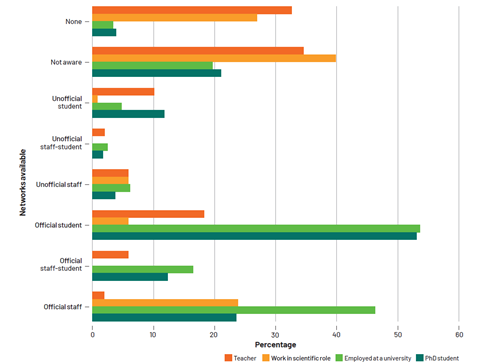
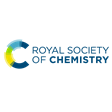
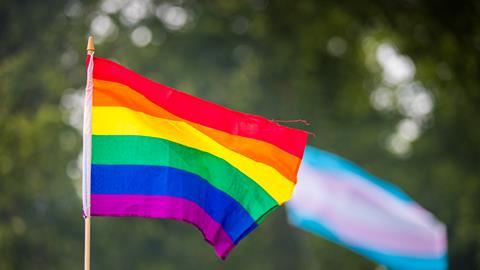

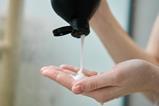

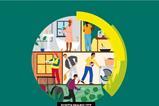

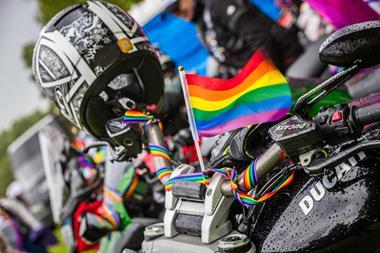







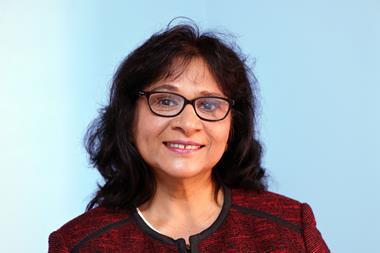
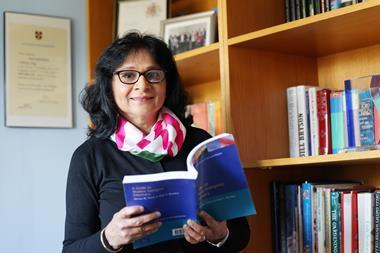

No comments yet